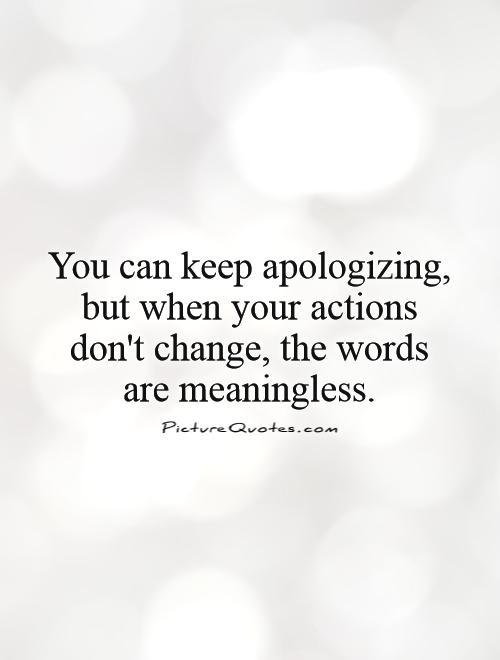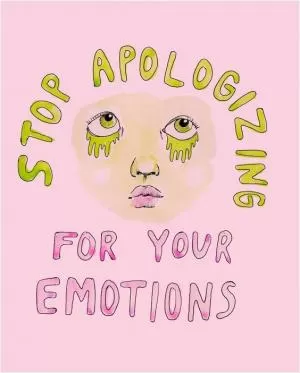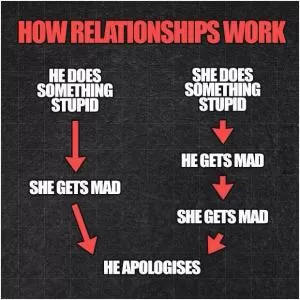You can keep apologizing, but when your actions don't change, the words are meaningless

You can keep apologizing, but when your actions don't change, the words are meaningless
Apologizing is a powerful tool in human relationships. It allows us to acknowledge our mistakes, take responsibility for our actions, and express remorse for any harm we may have caused. However, simply saying "I'm sorry" is not enough. Apologies must be backed up by meaningful actions in order to be truly effective.When someone repeatedly apologizes for the same behavior without making any effort to change, their words start to lose their impact. It becomes clear that their apologies are insincere and empty, lacking any real commitment to making amends. This can be incredibly frustrating for the person on the receiving end, as they are left feeling like their feelings are not being taken seriously.
In order for an apology to be meaningful, it must be accompanied by concrete actions that demonstrate a genuine desire to change. This could involve making amends for any harm caused, taking steps to prevent the same mistake from happening again, or seeking help to address any underlying issues that may be contributing to the problematic behavior.
For example, if someone repeatedly apologizes for being late but continues to show up late to meetings or appointments, their words of apology ring hollow. In order to truly make amends, they need to take proactive steps to improve their time management skills, set reminders, or make a conscious effort to prioritize punctuality.
Similarly, if someone apologizes for hurting someone's feelings but continues to engage in the same hurtful behavior, their words of apology lose their meaning. In order to repair the relationship, they need to make a genuine effort to change their behavior, show empathy and understanding towards the other person, and actively work towards rebuilding trust.












 Friendship Quotes
Friendship Quotes Love Quotes
Love Quotes Life Quotes
Life Quotes Funny Quotes
Funny Quotes Motivational Quotes
Motivational Quotes Inspirational Quotes
Inspirational Quotes